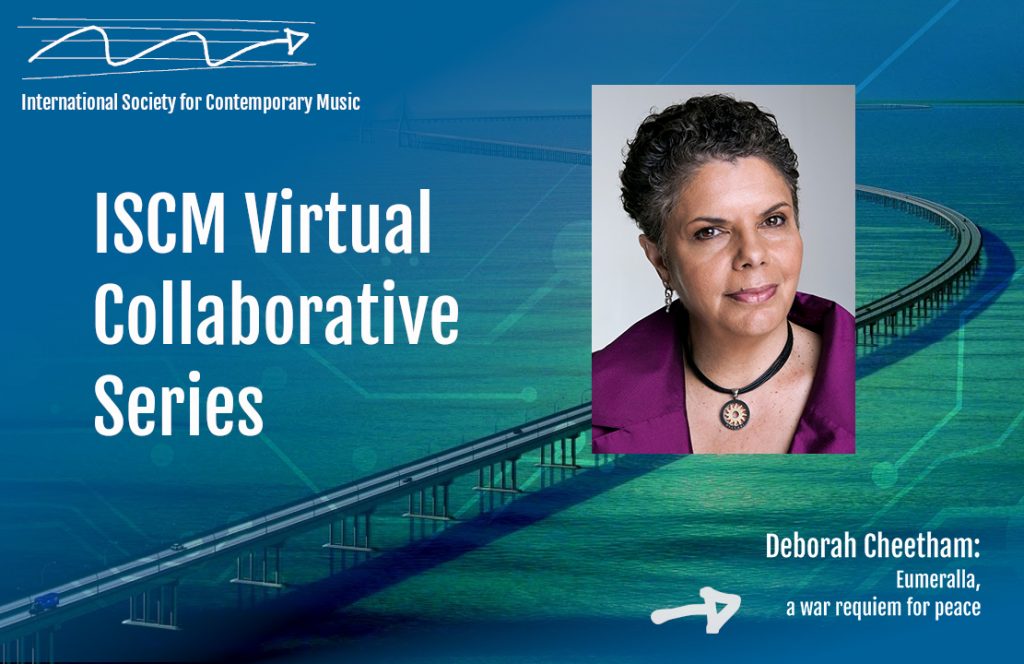Deborah Cheetham: Eumeralla, a war requiem for peace

Deborah Cheetham AO (b. 1964), Yorta Yorta woman, soprano, composer and educator has been a leader and pioneer in the Australian arts landscape for more than 25 years. In the 2014 Queen’s Birthday Honours List, Cheetham was appointed as an Officer of the Order of Australia (AO), for ‘distinguished service to the performing arts as an opera singer, composer and artistic director, to the development of Indigenous artists, and to innovation in performance’. In 2009, Deborah Cheetham established Short Black Opera as a national not-for-profit opera company devoted to the development of Indigenous singers. The following year she produced the premiere of her first opera Pecan Summer. This landmark work was Australia’s first Indigenous opera and has been a vehicle for the development of a new generation of Indigenous opera singers. In March 2015 she was inducted onto the Honour Roll of Women in Victoria and in April 2018 received an Honorary Doctorate from the University of South Australia for her pioneering work and achievements in the music. In 2019 Deborah Cheetham received the Merlyn Myer Prize to create a new work for the Melbourne based ensemble Syzygy. Cheetham’s list of commissions for major Australian ensembles continues to grow, including works for the Adelaide Symphony Orchestra, Melbourne Symphony Orchestra, Australian String Quartet, West Australian Symphony Orchestra String Quartet, Rubiks Collective, Plexus Ensemble, Flinders Quartet and the Goldner Quartet.
Eumeralla, a war requiem for peace is a large scale composition for Indigenous and non-indigenous performers, sung entirely in the ancient dialects of the Gunditjmara people. Original text by Deborah Cheetham AO expands on the structure of the traditional Requiem Mass, was translated into the Dhuawurd Wurrung and related dialects by Gunditjmara language custodian Vicki Couzens and Victorian based linguist Kris Eira. “The name Eumeralla is unlikely to be among the theatres of war that you could name. The history of battles fought and the lives that were lost is almost unknown to anyone outside the Aboriginal community. It is more than 170 years since the last shots rang out in the country of the Gunditjmara but the land is not silent. The voices of those who lost their lives in defence of their country ring in your ears when you stand amongst the lava flow of south west country of Victoria. Unlike other theatres of war such as Anzac Cove and the Somme, where peace was declared and relationships restored with the Turks and Germans, no such peace was declared in the resistance wars, no such restoration. Whilst the Gunditjmara uphold the memory of their warriors slain, most Australians have been denied access to this history and denied resolution – and so the land remains haunted. Eumeralla was written in recognition of one of the most brutal resistance wars fought on this continent and is designed for non-Indigenous Choirs to perform along-side Indigenous musicians. It is my hope that this war requiem will help the spirits of those who fell – those who resisted and their aggressors, to find a lasting peace and that we their descendants might find our way to deeper understanding of the legacy of these battles.”
